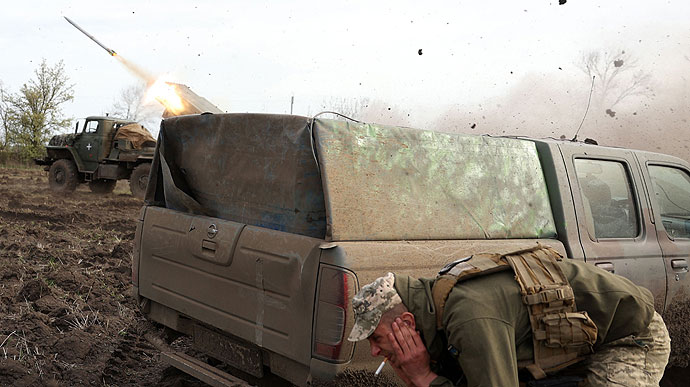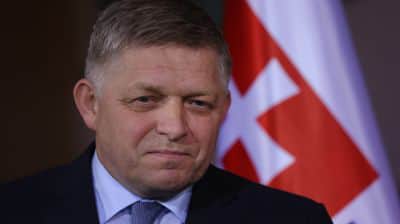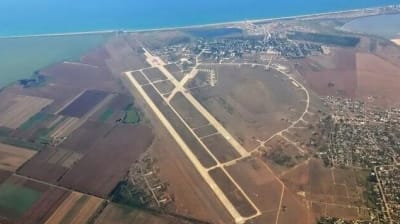US warned in January Ukraine would not be able to hold Bakhmut but city still stands

Ukraine decided to defend Bakhmut despite dire warnings from the US back in January, and months afterwards, Ukrainian forces are still holding the western edge of the town in the longest and deadliest battle of the war.
Source: The Washington Post
Quote from WP: "US assessments were bleak as early as January, according to previously unreported classified US intelligence documents leaked allegedly by Jack Teixeira, a member of the Massachusetts Air National Guard. An assessment marked ‘top secret’ cautioned that ‘steady’ Russian advances since November ‘had jeopardised Ukraine’s ability to hold the city,’ and Ukrainian forces would probably be ‘at risk of encirclement, unless they withdraw within the next month [February – ed.]’."
Details: However, the US warnings went largely unheeded. Kyiv decided to hold Bakhmut, claiming it was necessary to maintain national morale and deny Russia from boasting about any territorial gain.
Ukraine has said that the prolonged fighting in Bakhmut had weakened Russia’s forces because many soldiers had been killed, especially those from the Wagner mercenary group.
The Washington Post has also spoken to one of the Ukrainian commanders overseeing the fight for Bakhmut, Colonel Pavlo Palytsia, who said he had not been officially informed of this US intelligence or given any recommendations on how to proceed in Bakhmut to gain additional advantage.
Palytsia said that Ukrainian soldiers were able to hold parts of the city for months longer than predicted due to a combination of classic urban warfare and advanced drone reconnaissance, including the jamming of signals.
After Russian forces breached Bakhmut’s perimeter, Palytsia recounted how Ukrainian forces withdrew into residential blocks, using rooftops as elevated ground and turning houses into anti-tank positions.
Both sides began to rely heavily on reconnaissance drones deep inside the city for targeting purposes, as well as jammers to confuse the opponent’s navigation systems.
Palytsia said that the occupiers were succeeding in using jamming techniques, and if the defenders "do not have their eyes in the air", they cannot hit the Russians with artillery fire. The colonel noted that reconnaissance is very important because Ukraine does not have enough shells, so artillery fire must be accurate.
Palytsia said Ukraine has also picked up on Russian tactics, and is masking a drone’s "home point" or coordinates that would determine the location of the unit controlling the device.
He said that if the Russians find Ukrainian drones, they will see that the drone’s home point is somewhere in Australia.
Palytsia arrived at his post in mid-January - and at the time the assessments he heard from the officers around him reiterated Washington’s pessimism. Everyone was convinced they would hold out for 2-3 weeks.
"But months later and we’re still here, trying to do our best to hold the city," Palytsia said.
The WP reports that the "leaked" US documents also suggested that Russian morale was worsening and that desertion could be encouraged through a "physiological operation campaign" highlighting the "expendability" of Russian troops.
Another paragraph in the document urged Ukraine to deploy "dual-purpose improved conventional munitions" — a combination of artillery and surface-to-air missiles — against the amassed Russian forces to counter assault waves.
The WP reports that during critical moments when the defence of Bakhmut seemed untenable, Ukraine repeatedly moved elite units into the city to protect supply roads and steady the situation.
This strategy has been successful, allowing Ukraine to hold western edge of the city, but in recent days, the line of contact has become increasingly unstable, according to commanders.
The situation changes several times a day – in the morning, a road can be controlled by the Ukrainian military, then it can be seized by the occupiers, and a few hours later, Ukrainians can reclaim control of it.
The publication notes that Bakhmut is the main target of Russian operations in the east of Ukraine. Moscow has said the capture of the city would lay the groundwork for establishing control of the whole of Ukraine’s Donetsk Oblast, slightly more than half of which is currently occupied by Russian forces.
Ukrainian forces have said they will continue to hold the city.
"Every soldier understands that when we are holding the city, when we are inside Bakhmut, we are giving time to our newly created units to train and prepare for future actions," Palytsia said.
Journalists fight on their own frontline. Support Ukrainska Pravda or become our patron!





